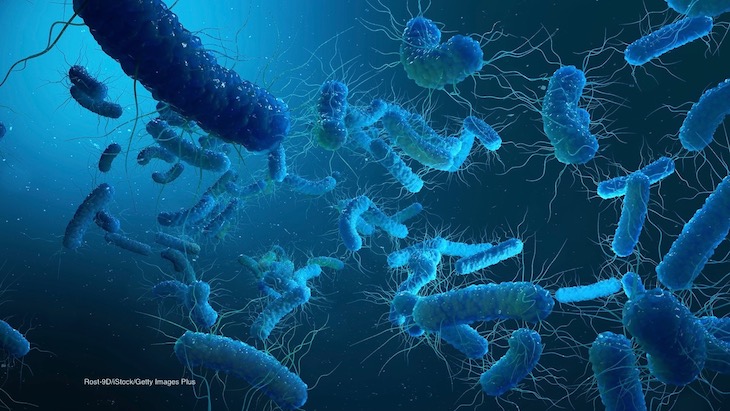A new study from the University of Minnesota School of Public Health and Masonic Cancer Center, published in the journal Science, finds a possible association between E. coli and cancer. The scientists have determined how toxins produced by the pathogen interact with and damage DNA on the molecular level.

Applications from this study may help doctors understand how toxins affect DNA, and may help them to develop tools to improve chemotherapy treatments.
The main researchers are Silvia Balbo, School of Public Health assistant professor, and Peter Villalta, mass spectrometry services coordinator at Masonic Cancer Center. Support was provided by the National Institutes of Health and the National Cancer Institute. The method uses mass spectrometry to study how toxins interact with DNA.
They used the technique to identify a specific modification in DNA in animal cells exposed to colibactin, a toxin produced by a specific strain of E. coli bacteria. Altering or damaging DNA can lead to cell mutations, which may grow into tumors. Colibactin is present in the human GI tract, and is linked to the development of colon cancer.
Balbo said, “This is important because it is the first time we’ve used this method to identify exactly how a toxin with an unknown chemical structure is interacting with and modifying DNA.”
The researchers compared the colon DNA of mice exposed to E. coli that produce this toxin to the colon DNA of mice exposed to E. coli that do not produce the toxin. They saw the DNA damage from the colibactin exposure and characterized its structure.
They hope to see if they can use the technique to find the same structural damage in people and use it as a diagnostic tool. This technique is also being used to discover how consuming alcohol damages DNA and triggers cancer development.
Balbo added that the technique could help improve chemotherapy by understanding how a drug interacts with a patient’s DNA. A microdose of chemo could be used to see how it affects the DNA of a patient’s cells before treatment begins.




